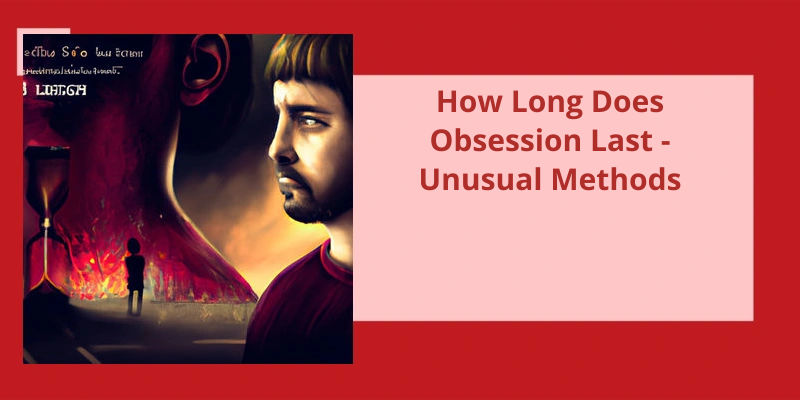It’s important to acknowledge the various human experiences that exist and to explore them in an empathetic and sensitive manner. One such experience is having a crush. Crushes, commonly associated with feelings of attraction and infatuation towards another person, are often depicted in popular culture as exciting and romantic. However, for those who identify as aromantic, a crush can stir up a range of confusing, uncomfortable, or even unwanted emotions. Understanding what a crush feels like to an aromantic individual requires a deeper appreciation of the nuances of personal identity, human emotion, and social expectations.
Can Aromantics Have a Crush?
Aromanticism is a unique orientation that’s often misunderstood. It refers to an individual who doesn’t experience romantic attraction. However, this doesn’t mean that aromantics don’t experience attraction at all. It’s possible for an aromantic person to have deep emotional connections with others, even if those connections don’t involve the desire for romantic relationships.
In some cases, an aromantic individual may experience something similar to a crush, but without the romantic aspect. This is known as a squish, which is a term used to describe a strong desire for an emotional connection with someone without any romantic or sexual interest. Squishes can be just as intense as romantic crushes and can involve a desire for close friendship or companionship.
This is different from romantic attraction and doesn’t necessarily indicate a desire for a romantic relationship.
It’s also worth noting that not all people who experience crushes identify as aromantic. Aromanticism is a specific identity, and individuals who experience romantic attraction but don’t desire romantic relationships may identify as gray-romantic or demiromantic instead. These individuals may experience crushes in a more traditional romantic sense, while still not desiring romantic relationships.
Aromantic individuals can experience attractions, including platonic crushes and sexual attraction. It’s important to respect and understand different identities and experiences, whether or not they align with our own.
How to Support Friends or Partners Who Identify as Aromantic
- Listen to them when they talk about their experiences and feelings.
- Respect their boundaries and understand that they may not be comfortable with romantic gestures or expressions of love.
- Be open to learning more about aromanticism and their specific experiences with it.
- Acknowledge that their identity is valid and important.
- Offer support and be a safe space for them to talk without judgement.
- Encourage them to connect with other aromantic individuals or communities.
- Avoid making assumptions about their relationship preferences or desires.
- Be mindful of how you express romantic feelings or actions around them.
If you’ve been wondering for a while whether you might be aromantic or not, there are certain signs and behaviors you need to be aware of. These signs can provide some clarity and insight into your relationship tendencies, and whether or not you’re inclined towards romantic attraction. Let’s explore some of the identifying traits and behaviors of aromanticism below.
How Do You Know if You’re Aromantic?
You may also find yourself feeling uncomfortable or even repulsed by the idea of romantic gestures or expressions of love, such as holding hands or saying “I love you”. Similarly, you might feel like physical or sexual intimacy isn’t something you’re interested in pursuing with a partner.
Aromanticism isn’t the same as being asexual, though many aromantic individuals may also identify as asexual. This means that they don’t experience sexual attraction to others. Being aromantic can also mean that you’ve a different understanding of what love and romantic relationships mean to you. For some, they might have close relationships that resemble platonic friendships in many ways, but don’t include romantic gestures or expectations.
It’s important to remember that everyone experiences relationships and love in their own unique way. Aromanticism is simply one part of the diverse spectrum of human experiences. Some people may discover that they’re aromantic early on in their lives, while others may not realize it until much later. It’s okay to take your time and explore your feelings and desires at your own pace.
If youre unsure whether youre aromantic or not, talking to other people who identify as aromantic can be helpful. You might also find it useful to read about other peoples experiences and perspectives on aromanticism. Ultimately, though, the most important thing is to trust your own feelings and intuition. If you feel that you don’t experience romantic attraction in the way that others do, thats okay. Theres no one “right” way to experience love or relationships.
It’s also worth noting that being aromantic doesn’t mean that you cant have fulfilling and meaningful relationships with others. Many aromantic individuals have deep and meaningful connections with friends, family, or partners, even if those relationships don’t include romantic feelings or expectations. The important thing is to find what works for you and to communicate openly and honestly with the people in your life about your feelings and desires.
Understanding your own feelings and desires when it comes to love and relationships can be a complex and personal journey. If youre questioning whether youre aromantic, there are a number of signs you can look out for, including a lack of romantic attraction, discomfort with romantic gestures, and a lack of interest in physical intimacy with others. Remember that everyone experiences love and relationships differently, and theres no “right” way to feel or identify.
So if you’ve ever had a crush that you couldn’t quite put your finger on, it’s possible that it wasn’t necessarily a romantic one. In fact, as we’ll explore next, there are many types of crushes that can occur between people, regardless of their romantic inclinations.
Can a Crush Be Non Romantic?
For some people, a crush could simply be a manifestation of admiration or fondness towards someone without any romantic intentions. This could be towards a mentor, a celebrity, or even a friend. It’s not uncommon for people to have crushes on people who they don’t necessarily want a romantic relationship with.
In some cases, a non-romantic crush could also be a coping mechanism for dealing with loneliness or boredom. This is particularly common for individuals who’ve recently experienced a major life transition, such as moving to a new city or starting a new job.
Overall, it’s important to recognize that crushes can take on many different forms, and not all of them are romantic in nature. As long as these feelings are acknowledged and managed in a healthy way, crushes could be a positive force in ones life.
How to Differentiate Between a Non-Romantic Crush and a Romantic Crush
Distinguishing between a non-romantic crush and a romantic one can be challenging. A non-romantic crush is based on admiration, liking, and appreciation for someone’s qualities. In contrast, a romantic crush involves romantic love and a desire for a romantic relationship. The presence of physical attraction, constant daydreaming, and intense emotional response indicates a romantic crush.
Conclusion
Crushes can be an incredibly complex and confusing experience. For someone who identifies as aromantic, however, they can be all the more complicated. Without the same desire for romantic attachment, it can be difficult to navigate the intense emotions and physical reactions that come with a crush. Despite this, many aromantic individuals still experience crushes in one form or another, and learning how to manage those feelings is important for a healthy sense of self. Whether it's acknowledging and accepting the crush, finding ways to redirect those emotions, or simply treating the person in question as any other friend or acquaintance, there’s no one right way to deal with a crush.






